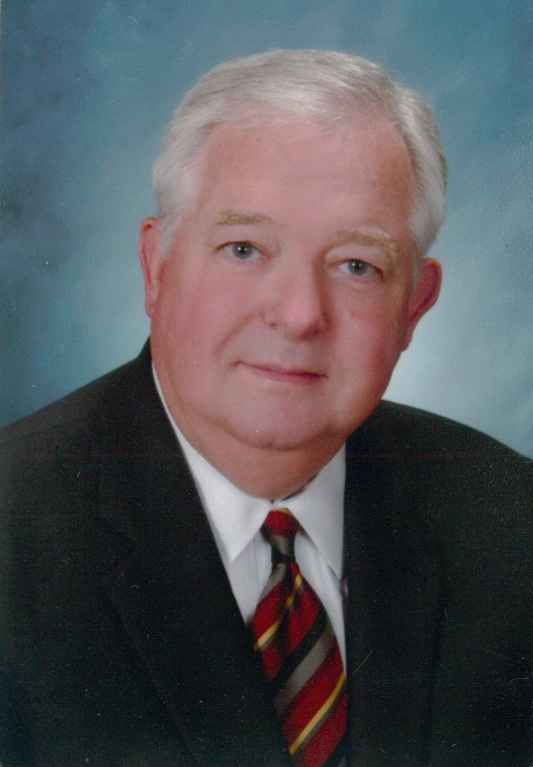By Jeff Brumley
Leaders of the Cooperative Baptist Fellowship of Oklahoma were stunned in the immediate hours after a monster tornado tore through Moore, Okla., on May 20, 2013, killing 24 people.
And they were overwhelmed trying to assess damage in order to properly deploy resources, Coordinator Steve Graham said.
Until, that is, Tommy Deal arrived the next afternoon.
Deal, director of U.S. Disaster Response for CBF, took Graham and other local leaders on a canvass of the region, assessing material and spiritual needs in storm-damaged communities across Central Oklahoma.

“The next day he put together a conference call with 30 people from across the U.S. in disaster response, helping us piece together our initial steps and best practices,” Graham said.
Graham recalled those experiences in the wake of news that Deal, 59, will step down from his position with CBF on July 31. Graham and others say his absence will be felt by those in the national faith-based disaster response community.
CBF concurred.
“I would like to thank Tommy for his three years of service … and for the relationships he has cultivated and strengthened within the Fellowship and nationally,” Ron Fairley, coordinator of projects and services for CBF, said in a statement emailed to Baptist News Global. “His leadership will be missed.”
Beginning Aug. 1, Fairley said, he will become interim director of disaster response.
‘Into the raging fire’
Deal said he decided to leave the part-time contracted position after rediscovering, as a part-time hospice chaplain, the joy he feels when working in direct ministry.
“It’s been 15 years since I was church staff,” he said, explaining that his original calling was into church ministry and chaplaincy.
But it was Deal’s early attraction to the life of a first responder that laid the groundwork for his eventual move into disaster response work.
“I have been a firefighter and EMT (emergency medical technician) since the age of 16 and it’s always been in my blood,” he said. “I jokingly say that had I followed my passion instead of my calling, I would have been a retired firefighter by now.”

While Deal worked as an associate pastor in churches in Texas, Georgia and Virginia, he maintained his relationship with the first responder community, usually by serving as a chaplain in local fire and police departments.
“As one who has … gone into the raging fire and rescued people from mangled cars, I understand a lot of the emotional trauma that responders go through and can relate to what they are going through in these events,” he said.
Those experiences helped Deal land the job in 2004 of associate coordinator of CBF Florida, which wanted someone capable of handling disaster response duties.
The timing couldn’t have been better: that was the year hurricanes Charley, Francis, Ivan and Jeanne ravaged the Sunshine State.
Just as he did that year, Deal was instrumental in responding to tornadoes that hit the state in 2007, said Ray Johnson, coordinator of CBF Florida.
It was Deal’s ability to relate to the first responder community and to the needs of victims that made him so effective in disaster response operations, Johnson said.
And all of that boiled down to Deal’s skill at relationship building.
“He pulled it all together and built the relationships with some new partners and others who do disaster relief,” Johnson said of the 2007 effort.
He added that Deal’s approach fit hand-in-glove with CBF’s philosophy in that ministry.
“CBF’s approach to disaster response is long term rather than short term, so relationships become very important,” he said.
And that was Deal’s first-responder and chaplaincy background, Johnson added.
“He brings those skill sets — not just overseeing material relief but spiritual support for responders and victims,” he said.
‘A critical piece’
Jill Hatcher said she was a recipient of that support.
Deal tapped Hatcher, a member of First Baptist Church of Norman, to coordinate tornado recovery efforts in 2013 after determining the response should be led locally.
While Hatcher said she had ample experience as a project coordinator and the heart to take on that effort, it eased her mind to have Deal guiding her through the process and bringing so many relationships with other recovery groups to bear.
Plus he brought a chaplain’s presence to the chaotic, tragic situation.
“He drove me all over the affected areas, showing me the ropes,” Hatcher said. “He was so calm and supportive and encouraging, which was a critical piece to that recovery effort.”
A major partner in the Oklahoma recovery effort was Texas Baptist Disaster Recovery, which supplied a huge number of the volunteers for months of relief and rebuilding.
That cooperation was made possible in part by Deal’s ability to communicate and orchestrate multiple moving parts in large-scale operations, said Marla Bearden, a disaster recovery specialist with Texas Baptists.
“He was very organized — he has a good gift of organization,” Bearden said.

He’s also been very handy in other settings, including responding to tornadoes in Arkansas in 2014, she said.
“When we go out of state, Tommy would always have such good contacts for us,” Bearden said.
Missing ‘that direct ministry’
Deal said it was satisfying to tap into his gifts for administration and organization during his tenure as CBF’s national disaster director. But his current stint as a hospice chaplain — made possible by the part-time arrangement of the Fellowship job — has reminded him of the other parts of his calling.
“It has reignited my fire for direct pastoral care,” he said. That happened since he began the part-time position in December which enables him “to walk alongside families as they journey through end-of-life issues.”
Deal said he doesn’t know if hospice will be the spot. “But I have realized that I have missed that direct ministry.”

